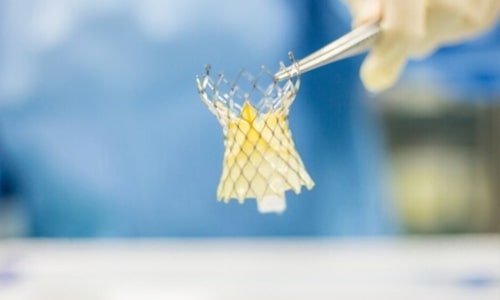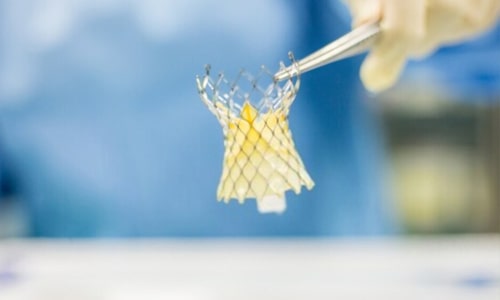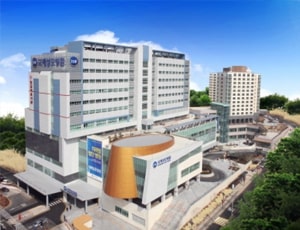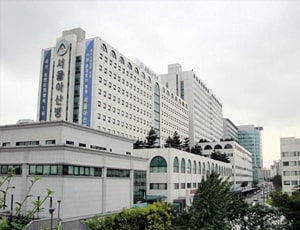The average cost of Cardiac Valve Replacement in Seoul approximately starts from USD 30000
Treatment cost

Some of the key inclusions which we provide as additional benefits of the package are:
With us, you are sure to receive all the benefits at competitive prices which is a better choice than paying actual hospital costs. AVR/MVR Valve Replacement Surgery is a heart valve repair procedure, which is performed to correct heart valves that are not functioning properly. Aortic Valve Replacement is an open heart technique, which involves leakage or narrowing of the aortic valve. Mitral Valve Repair is again an open heart procedure used to treat regurgitation (leakage) or stenosis (narrowing) of the mitral valve. Therefore, to explain AVR/MVR in simple terms, it is a heart condition developed when normal flow of blood through the arteries and vessels through your heart is interrupted., For AVR/MVR Valve Replacement Surgery in Turkey, we are providing the best all-inclusive discounted package at Medicana Camlica Hospital with some additional benefits.

Some of the key inclusions which we provide as additional benefits of the package are:
We offer packages at reasonable pricing that include a variety of additional advantages, making it a better deal than paying for individual perks at the hospital. AVR/MVR Valve Replacement Surgery is a heart valve repair procedure, which is performed to correct heart valves that are not functioning properly. Aortic Valve Replacement is an open heart technique, which involves leakage or narrowing of the aortic valve. Mitral Valve Repair is again an open heart procedure used to treat regurgitation (leakage) or stenosis (narrowing) of the mitral valve. Therefore, to explain AVR/MVR in simple terms, it is a heart condition developed when normal flow of blood through the arteries and vessels through your heart is interrupted., For AVR/MVR Valve Replacement Surgery in India, we are providing the best all-inclusive discounted package at Pushpawati Singhania Research Institute with some additional benefits.

International St. Mary's Hospital located in Seoul, South Korea is accredited by JCI. Also listed below are some of the most prominent infrastructural details:


Asan Medical Centre located in Seoul, South Korea is accredited by ISO. Also listed below are some of the most prominent infrastructural details:
Cardiac Valve replacement is performed to replace or repair a valve in the heart that stops working properly due to Valvular Heart Disease, also called Heart Valve Disease.
Heart valve replacement surgery involves a significant procedure that is performed through an open-heart approach, accessing the chest via the breastbone. This major operation, lasting two hours or more, requires a substantial recovery period, often extending over several weeks. While advancements have introduced less invasive alternatives for specific cases of valvular heart disease, these procedures are currently limited to select hospitals.
The main types of cardiac valve impairment include:
Valve replacement includes four procedures:
The aortic valve and the mitral valve replacements are the most common. Pulmonary and tricuspid valve replacements are uncommon in adults.
Valve replacement or repair can be done in several ways, depending on the problem. The most common valve replacements are:
Surgical procedure- In Aortic valve replacement the incision is made by cutting through the sternum. After the pericardium is opened, the patient is put on a cardiopulmonary bypass machine, which is also known as the heart-lung machine. This machine performs the task of breathing for the patient and pumping their blood around while the surgeon replaces the heart valve.
The surgeon makes a cut in the aorta when the patient is on bypass and applies a crossclamp. The patient's diseased aortic valve is removed and is replaced by a mechanical or tissue valve. After the placement of the artificial valve and closing the aorta, the heart-lung machine is taken off from the patient. A transesophageal echocardiogram helps to confirm whether the new valve is functioning properly.
Surgical procedure- General anesthesia is given to the patient before mitral valve replacement. An incision is made horizontally under the left breast, or vertically through the sternum. After exposing the heart, a cannula is placed and blood is directed to the heart-lung machine for cardiopulmonary bypass. The mitral valve is exposed by creating an incision in the left atrium. Then the valve is replaced. The left atrium is closed and the cardiopulmonary bypass is removed. The patient is taken to an intensive care unit after the surgery.
Post cardiac valve replacement, patients typically undergo a recovery period that involves monitoring for signs of infection, managing pain, and gradually resume normal activities. Short-term restrictions on strenuous activities may be advised, and a cardiac rehabilitation program could be recommended to enhance overall recovery.
Regular follow-up appointments with healthcare professionals help track progress and address any concerns, ensuring a smooth transition back to daily life while promoting optimal heart health.
Ask your healthcare adviser for the best multiple options and choose the one that meets your expectations
The cost of Cardiac Valve Replacement procedure starts from $30000 in Seoul. KOIHA are just some of the accreditations which top hospitals in Seoul hold where a Cardiac Valve Replacement is conducted.
Cardiac Valve Replacement package cost in Seoul has different inclusions and exclusions. Some of the best hospitals for Cardiac Valve Replacement offer a comprehensive package that covers the end-to-end expenses related to investigations and treatment of the patient. The treatment cost usually includes the expenses related to hospitalization, surgery, nursing, medicines, and anesthesia. Stay outside the package duration, port-operative complications and diagnosis of a new condition may further increase the Cardiac Valve Replacement cost in Seoul.
There are many hospitals that perform Cardiac Valve Replacement in Seoul. The top hospitals for Cardiac Valve Replacement in Seoul include the following:
While the speed of recovery may vary from patient to patient, they are still required to stay for about 16 days after discharge. During this time, the patient undergoes medical tests and consultations. this is to ensure that the treatment was successful and the patient us safe to return.
Apart from the cost of Cardiac Valve Replacement, the patient is also required to pay additionally for daily meals and guest house accommodation. These are the charges for daily meals and accommodation outside the hospital. The per day cost in this case may range from 40 USD.
After Cardiac Valve Replacement surgery, the patient is supposed to stay for about 5 Days in the hospital for recovery and monitoring. The patient is subjected to several biochemistry and radiological scans to see that everything is okay and the recovery is on track. After making sure that patient is clinically stable, discharge is planned.
Out of all the hospitals in Seoul, there are about 2 Hospitals best hospitals for Cardiac Valve Replacement in Seoul. These hospitals are approved to perform the surgery and have proper infrastructure to handle Cardiac Valve Replacement patients. Such hospitals follow all legal protocols and guidelines as specified by the local medical affairs body when it comes to the treatment of international patients.
Some of the most sought after doctors for Cardiac Valve Replacement in Seoul are: